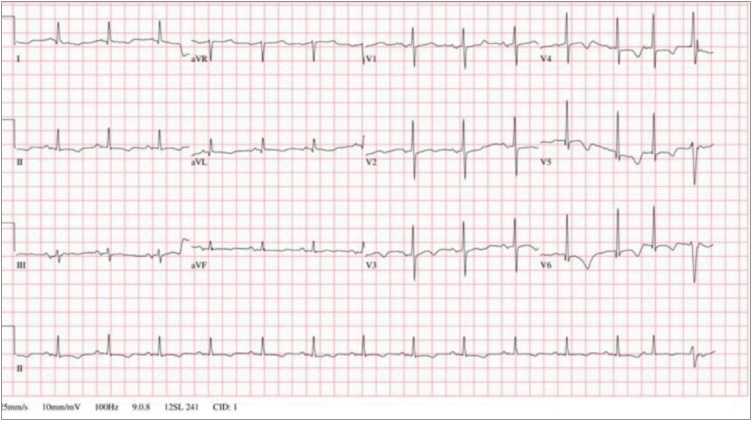J Korean Med Sci.
2023 Mar;38(12):e107. 10.3346/jkms.2023.38.e107.
Lethal Arrhythmia Induced by Licorice
- Affiliations
-
- 1Department of Cardiology, Ajou University School of Medicine, Suwon, Korea
- KMID: 2541034
- DOI: http://doi.org/10.3346/jkms.2023.38.e107
Figure
Reference
-
1. Meltem AC, Figen C, Nalan MA, Mahir K, Sebnem B, Mehlika I, et al. A hypokalemic muscular weakness after licorice ingestion: a case report. Cases J. 2009; 2(1):8053. PMID: 20181204.2. Hautaniemi EJ, Tahvanainen AM, Koskela JK, Tikkakoski AJ, Kähönen M, Uitto M, et al. Voluntary liquorice ingestion increases blood pressure via increased volume load, elevated peripheral arterial resistance, and decreased aortic compliance. Sci Rep. 2017; 7(1):10947. PMID: 28887501.3. Boganen H, van Hee K, Grundmeijer HG. Hypertension due to liquorice and liquorice tea consumption. Ned Tijdschr Geneeskd. 2007; 151(51):2825–2828. PMID: 18237050.4. Penninkilampi G, Eslick EM, Eslick GD. The association between consistent licorice ingestion, hypertension and hypokalaemia: a systematic review and meta-analysis. J Hum Hypertens. 2017; 31(11):699–707. PMID: 28660884.5. Patel P, Aknouk M, Dawson A, Aya A, Kanukuntla A, Kata P, et al. How much is too much? Exploring pseudohyperaldosteronism in glycyrrhizic acid toxicity from chronic licorice root consumption. Cureus. 2021; 13(7):e16454. PMID: 34422484.6. Beik A, Joukar S, Najafipour H. A review on plants and herbal components with antiarrhythmic activities and their interaction with current cardiac drugs. J Tradit Complement Med. 2020; 10(3):275–287. PMID: 32670823.
- Full Text Links
- Actions
-
Cited
- CITED
-
- Close
- Share
- Similar articles
-
- Electrical storm induced by hypokalemia associated with herbal medicines containing licorice
- The Indigenization of Licorice and Its Meaning During the Early Days of the Joseon Dynasty
- Licorice-nduced Hypokalemia and Myopathy
- Licorice Induced Hypokalemia
- A case of chronic licorice intoxication-induced apparent mineralocorticoid excess syndrome




